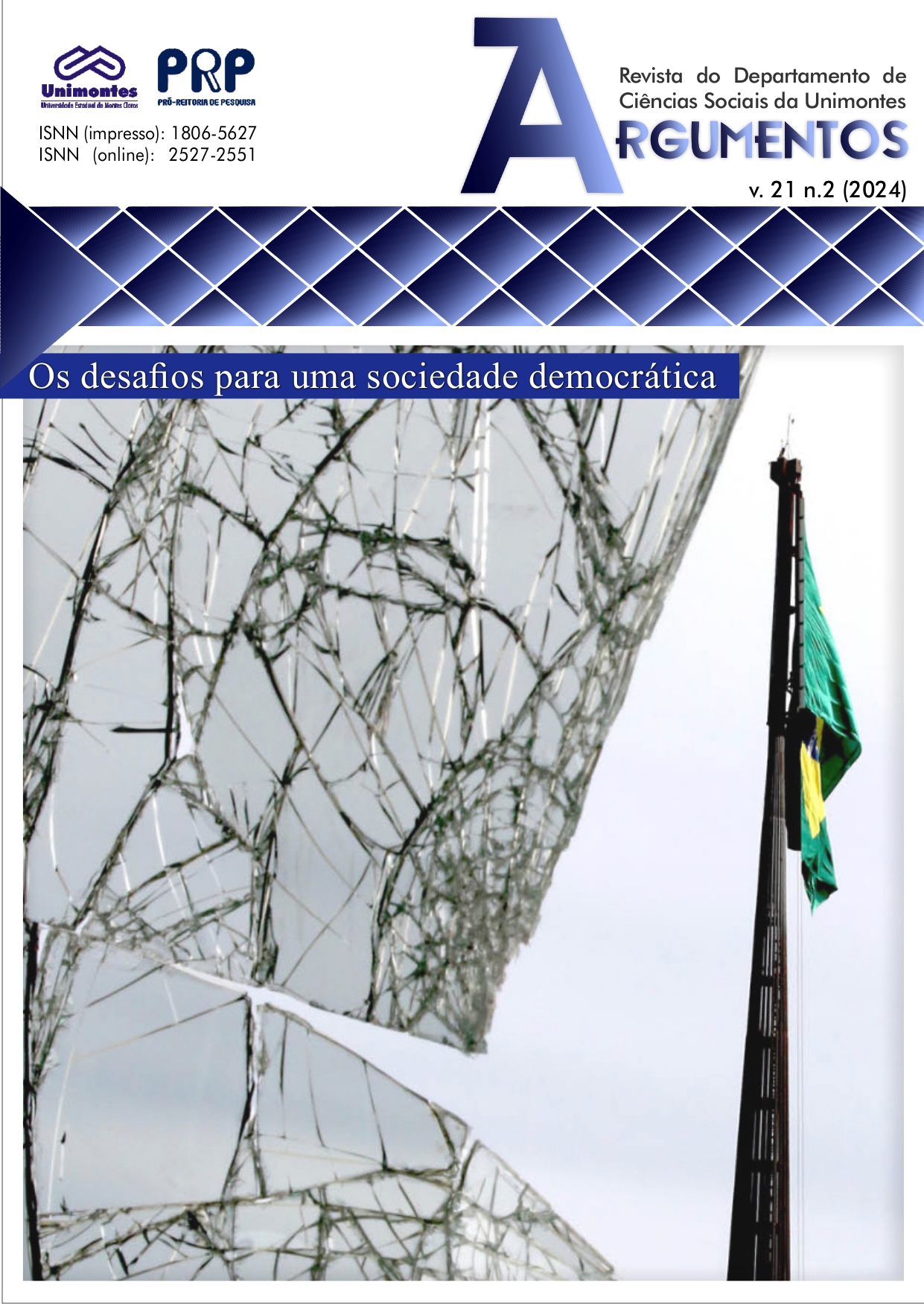Trumpism in the Brazilian way: neoconservatism in the diplomatic discourse of Jair Messias Bolsonaro's government
DOI:
10.46551/issn.2527-2551v21n2p.142-165Keywords:
Democracy, Foreign Policy, Bolsonarism, Trumpism, Antiglobalism.Abstract
In a broader analysis of the process of political and institutional degradation promoted by Bolsonarism in the Brazilian political debate in recent years, it is worth highlighting the role played by foreign policy in promoting ideas and actions anchored in Trumpist political thought. Emulating the ideas and actions of former United States President Donald Trump, Jair Bolsonaro's government (2019-2022) imported many of his conceptions of international politics, such as populism, nationalism and anti-globalism. Conceived as worldviews that guide the strategic choices of political actors, the ideas help to explain the conception and implementation of foreign policy. Ideological conceptions interact with the constraints and independent variables that impact society, the State and international relations. And they are mobilized by different actors, governments and regimes to formulate, operationalize and legitimize foreign policy choices. In this sense, the article seeks to verify whether Jair Bolsonaro's foreign policy bears similarities to Brazil's conservative worldview in foreign policy. To this end, we sought to analyze how the country's conservative thinking in the 19th and 20th centuries can provide models of understanding about Brazil's international insertion. In a second moment, the article contrasted this conceptual legacy with national-populist thought of North American origin, focusing on the conceptual formulation of the ideas of ideologist Olavo de Carvalho, Chancellor Ernesto Araújo and President Jair Bolsonaro. In a third moment, the implementation of national populism of Trumpist origin was analyzed in three themes of Brazilian diplomacy: in the bilateral relationship with the United States; in the Venezuelan crisis; in relations with Israel and Arab countries.
Downloads
References
ALMEIDA, Paulo Roberto. Pensamento diplomático brasileiro: Introdução metodológica às ideias e ações de alguns dos seus representantes” in: Pimentel, J. (org.), Pensamento Diplomático Brasileiro: Formuladores e Agentes da Política Externa (1750-1964), Volume I. Brasília: FUNAG, p. 15-40, 2013.
BELÉM LOPES, Dawisson. Da Razão de Estado ao Republicanismo Mitigado: Uma Narrativa Faoriana sobre a Produção da Política Externa Brasileira. DADOS – Revista de Ciências Sociais, Rio de Janeiro, vol. 57, no 2, 2014, pp. 481 a 516.
BOBBIO, Norberto e MATTEUCCI, Nicola e PASQUINO, Gianfranco. Dicionário de Política. 13ª ed. Brasília: UnB, 2010
BUENO, Clodoaldo. Política Externa da Primeira República: os anos de apogeu 1902-1918. São Paulo: Paz e Terra, 2003, p. 128
BRASILIENSE, Américo. Os programas políticos dos partidos e o segundo império. São Paulo: Tipografia Jorge Seckler, 1878, pp. 12 e 13.
CERVO, Amado Luiz e BUENO, Clodoaldo. História da Política Externa Brasileira. 5ª ed. UnB, 2014)
CAMPBELL, John L (2002). Ideas, Politics, and Public Policy. Annual Review Sociology. 28: 21-38. Downloaded from arjornals.annualreviews.org by CAPES on 05∕04∕05.
“Conservatism”, “Culture Wars”, “Neoconservatism”, “Paleoconservatism” e “Puritanism” em American Conservatism: an encyclopaedia. 2ª ed. Bruce Frohnen, Jeremy Beer e Jeffrey O. Nelson (ed.). Wilmington: ISI Books, 2006.
DANESE, Sérgio. Diplomacia presidencial: história e crítica. Rio de Janeiro: Topbooks, 1999.
________. A escola da liderança. Ensaios sobre política externa e a inserção internacional do Brasil. Rio de Janeiro: Record, 2009.
FAORO, Raimundo. Os Donos do Poder. 3ª ed. Rio de Janeiro: O Globo, 2010 p. 362).
GOLDSTEIN, Judith; KEOHANE, Robert Owen. Ideas and Foreign Policy: Beliefs, Institutions and Political Change. Cornell: Cornell University Press, 1993
GOUREVICTH, Peter (1986). Politics in hard times: comparative responses to international economic crisis. Ithaca and London: Cornell University Press..
HALL, Peter (1986). Governing the economy: the politics of state intervention in Britain and France. New York, Oxford University Press.
IKENBERRY, John. (1993). Historical Institutionalism and Foreign Policy Analysis: The Origins of the National Security Council Revisited, Foreign Policy Analysis Vol. 7, No. 1: 27-44.
IKENBERRY, John G (1998). Conclusion: An Institutional Approach to American Foreign Economic Policy. In: Ikenberry, G. John; Lake, David A.; Mastanduno, Michael (eds.). The State and American Foreign Economic Policy. Ithaca, NY.: Cornnel University Press.
IKENBERRY, G. John. (2001) After Victory: Institutions, Strategic Restraint, and the Rebuilding of Order After Major Wars. Princeton: Princeton University Press.
LAMPREIA, Luiz Felipe. Diplomacia Brasileira: palavras, contextos e razões. Rio da Janeiro: Lacerda Ed, 1999.
PERISSINOTTO, Renato and STUMM, Michelli Gonçalves. A virada ideacional: quando e como ideias importam. Rev. Sociol. Polit. 2017, vol.25, n.64, pp.121-148.
RICUPERO, Rubens. A diplomacia na construção do Brasil (1750-2016). Rio de Janeiro: Versal Editores, 2017.
SCANTIMBURGO, João. História do Liberalismo no Brasil. São Paulo: Ltr, 1996,
SCRUTON, Roger. Conservatism: an introduction to a great tradition. Londres: All Points Books, 2018
WEFFORT, Francisco. Formação do pensamento político brasileiro. Ideias e personagens. São Paulo: Ática, 2006.







.png)










.png)





